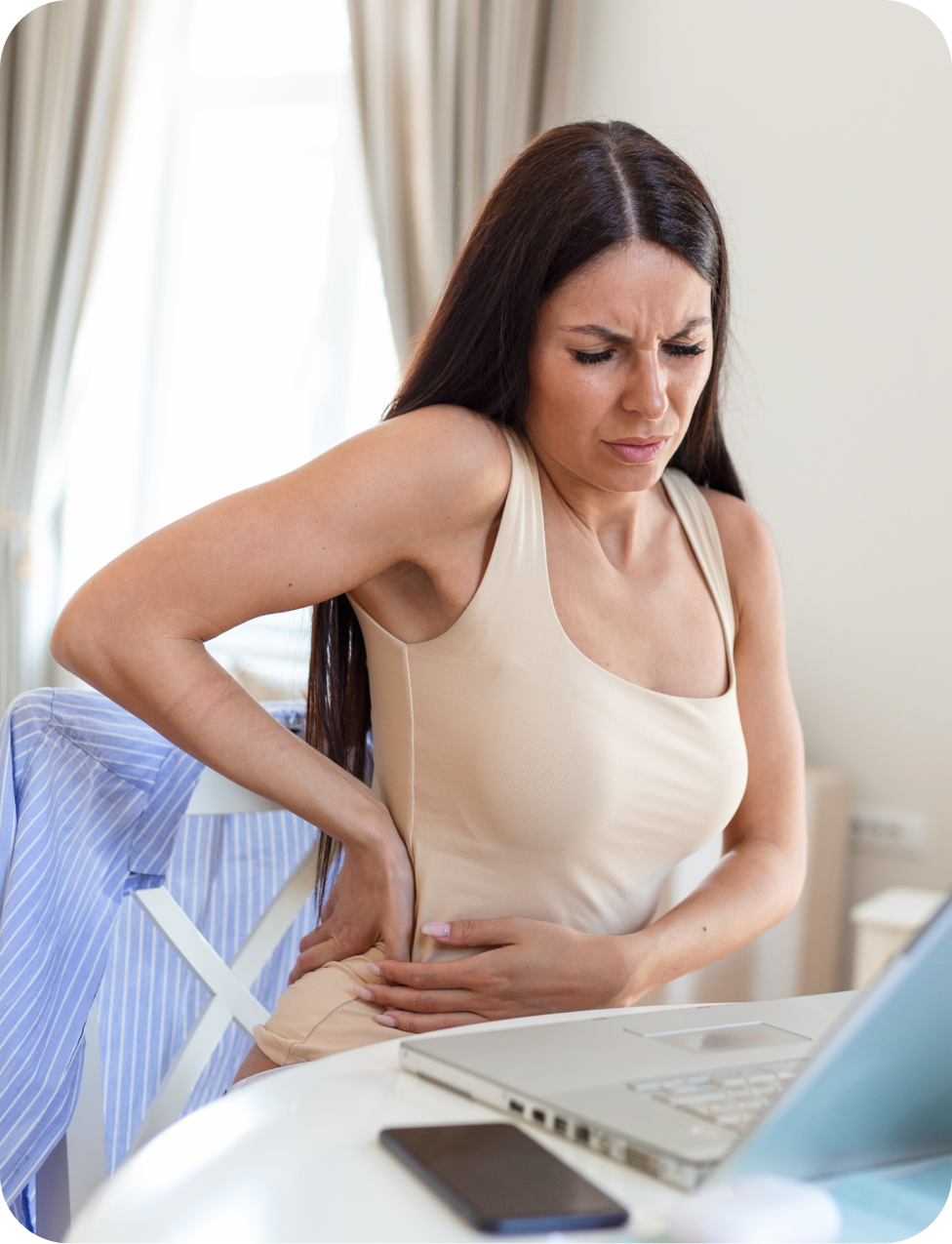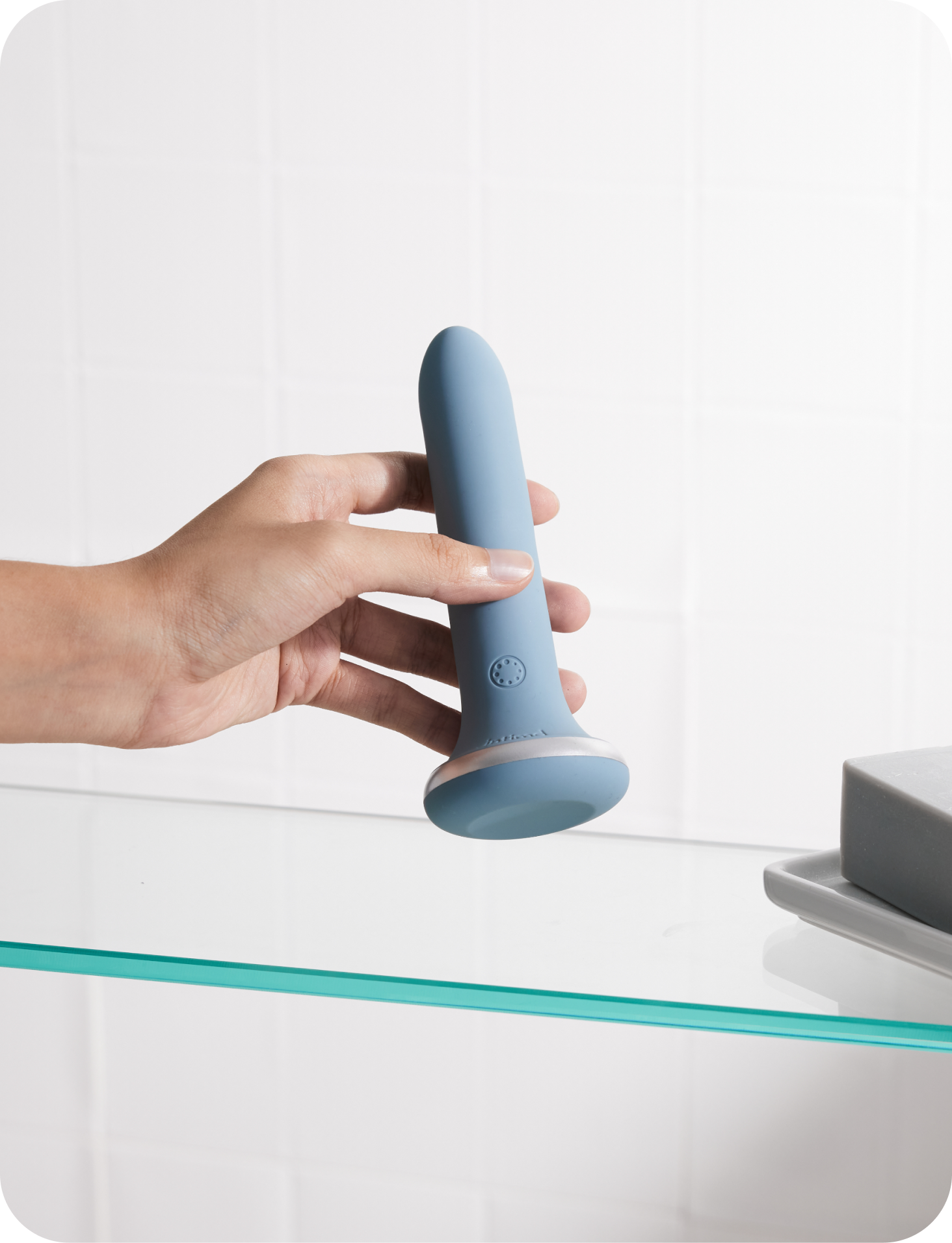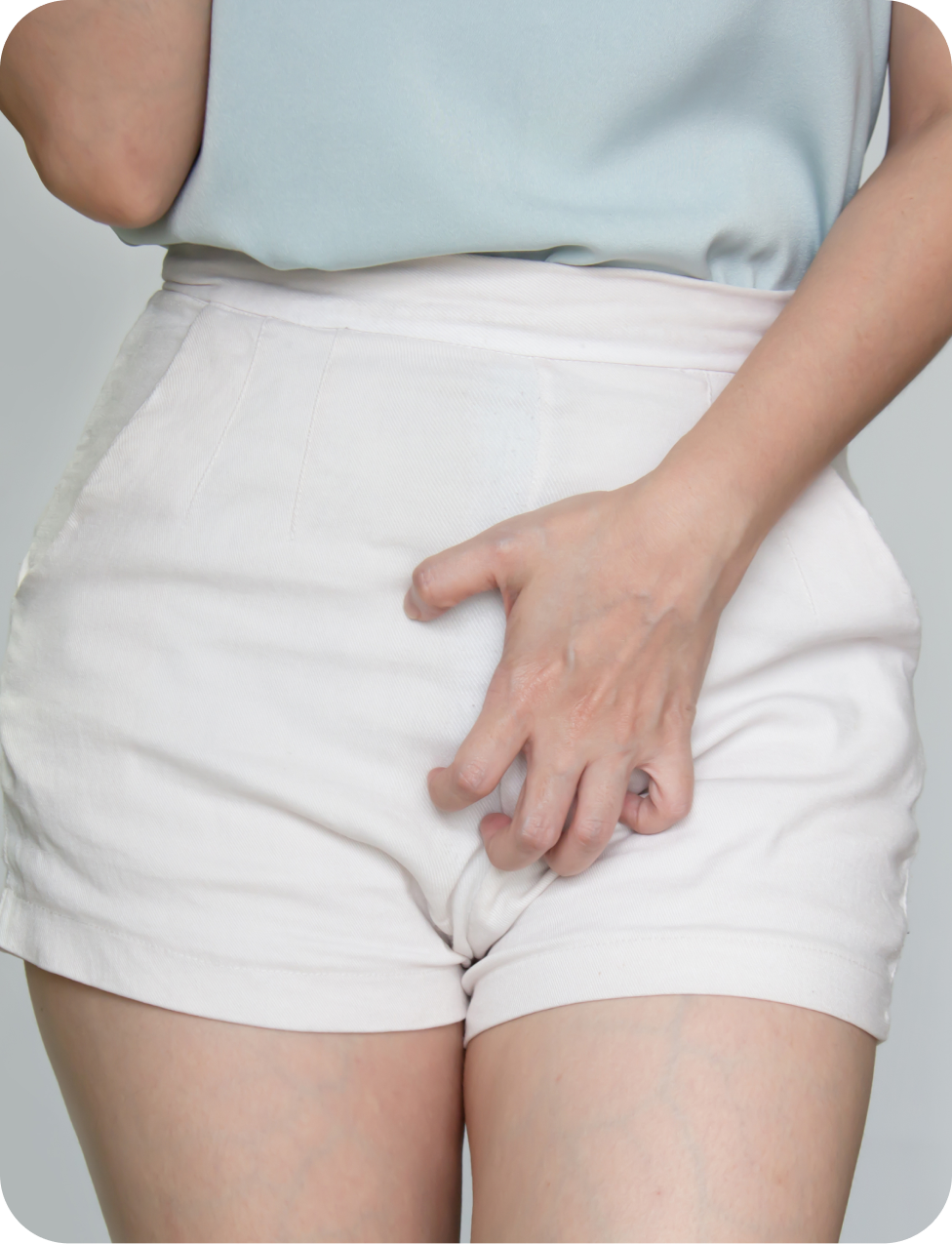Experiencing sudden, stabbing pelvic pain can be unsettling, especially when the cause isn’t immediately clear. While some cases may be harmless, others could indicate an underlying medical condition requiring attention. This article explores the causes of pelvic pain in women when to seek medical care, and potential treatment options.
Common Causes of Sudden Stabbing Pelvic Pain in Women
1. Ovulation Pain (Mittelschmerz)
For some women, ovulation can cause mild to severe pain, known as mittelschmerz. This occurs when the ovary releases an egg, typically in the middle of the menstrual cycle. The pain is usually one-sided and can feel sharp or cramp-like. It may last a few minutes to a few hours and sometimes be accompanied by mild spotting. Although ovulation pain is generally harmless, persistent or extreme discomfort may require a medical evaluation to rule out other conditions.
2. Menstrual Cramps
Dysmenorrhea, or painful periods, can sometimes cause sharp, sudden pain, especially if blood clots are passing through the cervix. This pain often occurs just before or during menstruation and can vary from mild to debilitating. Primary dysmenorrhea is linked to natural uterine contractions, while secondary dysmenorrhea can result from underlying conditions such as endometriosis or fibroids. Managing menstrual cramps with heat therapy, NSAIDs (non-steroidal anti-inflammatory drugs), and lifestyle adjustments can help alleviate discomfort.
3. Ovarian Cysts
Ovarian cysts are fluid-filled sacs that develop on the ovaries. Most are harmless and go away on their own, but if a cyst bursts or twists (ovarian torsion), it can cause sudden, intense pelvic pain that may require emergency medical attention. Ruptured cysts can lead to internal bleeding, nausea, and dizziness. Large or painful cysts may require hormonal treatment or surgical removal to prevent complications.
4. Ectopic Pregnancy
An ectopic pregnancy occurs when a fertilized egg implants outside the uterus, often in a fallopian tube. This is a life-threatening condition that causes severe stabbing pelvic pain, usually on one side, and may be accompanied by vaginal bleeding, dizziness, or fainting. Early diagnosis is critical, as untreated ectopic pregnancies can result in rupture and life-threatening internal bleeding. Treatment options include medication or surgery, depending on the severity of the case.
5. Pelvic Inflammatory Disease (PID)
PID is an infection of the reproductive organs, often caused by sexually transmitted infections (STIs) such as chlamydia or gonorrhea. It can lead to sudden sharp pain, fever, abnormal discharge, painful urination, and painful intercourse. If left untreated, PID can cause scarring, chronic pain, and infertility. Treatment typically involves antibiotics, but severe cases may require hospitalization.
6. Endometriosis
This condition occurs when tissue similar to the lining of the uterus grows outside of it, leading to severe pain during menstruation, ovulation, or even daily activities. The misplaced tissue responds to hormonal changes, leading to inflammation, scarring, and adhesions that can cause sharp pelvic pain. Endometriosis may also contribute to infertility. Treatment options include pain management, hormonal therapy, and surgery in severe cases.
7. Uterine Fibroids
These noncancerous growths in the uterus can cause sharp pelvic pain, especially if they twist or degenerate. Fibroids can also cause heavy menstrual bleeding, frequent urination, and lower back pain. While small fibroids usually do not require treatment, larger ones may need medication, minimally invasive procedures, or surgery to alleviate symptoms and prevent complications.
8. Urinary Tract Infections (UTIs) and Kidney Stones
UTIs can cause burning and pelvic discomfort, along with frequent and painful urination. If untreated, these infections can spread to the kidneys, leading to severe pain and fever. Kidney stones, on the other hand, can cause sudden, sharp pelvic pain that radiates to the lower back or groin. Small stones may go away independently with hydration and pain management, while larger stones may require medical intervention.
9. Appendicitis
Although not directly related to reproductive health, appendicitis can cause sharp pain in the lower right abdomen and often be mistaken for gynecological issues. The pain may start as mild discomfort and rapidly progress to severe pain accompanied by fever, nausea, and loss of appetite. Appendicitis is a medical emergency that requires surgical removal of the appendix to prevent rupture and life-threatening complications.
When to See a Doctor
Seek medical attention if you experience:
-
Severe, persistent pelvic pain
-
Pain accompanied by fever, vomiting, or chills
-
Sudden pain with heavy bleeding
-
Difficulty urinating or pain during intercourse
-
Pain that disrupts daily activities or worsens over time
Treatment Options and Relief for Sudden Pelvic Pain
Treatment depends on the underlying cause:
-
Pain Relievers: Over-the-counter NSAIDs (such as Ibuprofen) can help with cramps and ovulation pain.
-
Antibiotics: If an infection like PID is causing your symptoms, antibiotics will be necessary.
-
Hormonal Therapy: Birth control pills or other hormonal treatments may help regulate ovulation and reduce pain caused by conditions like endometriosis and fibroids.
-
Surgery: In severe cases (such as ruptured cysts, ectopic pregnancy, or fibroids), surgical intervention may be required to remove the problematic tissue or structure.
-
Home Remedies: Warm compresses, rest, hydration, and relaxation techniques can relieve mild pelvic pain.
-
Lifestyle Changes: Maintaining a balanced diet, following a regular exercise routine, and managing stress can help reduce the frequency and severity of pelvic pain episodes.
-
Pelvic Floor Therapy: Includes targeted exercises and techniques that can improve muscle function and alleviate pain, especially for those with chronic pelvic conditions.
Final Thoughts
Sudden, stabbing pelvic pain in women can have multiple causes, from minor issues like ovulation pain to more serious conditions like ectopic pregnancy. Understanding the potential causes and seeking timely medical care is crucial for maintaining reproductive health. If you’re experiencing persistent or severe pain, consult a healthcare professional to determine the most appropriate treatment.




